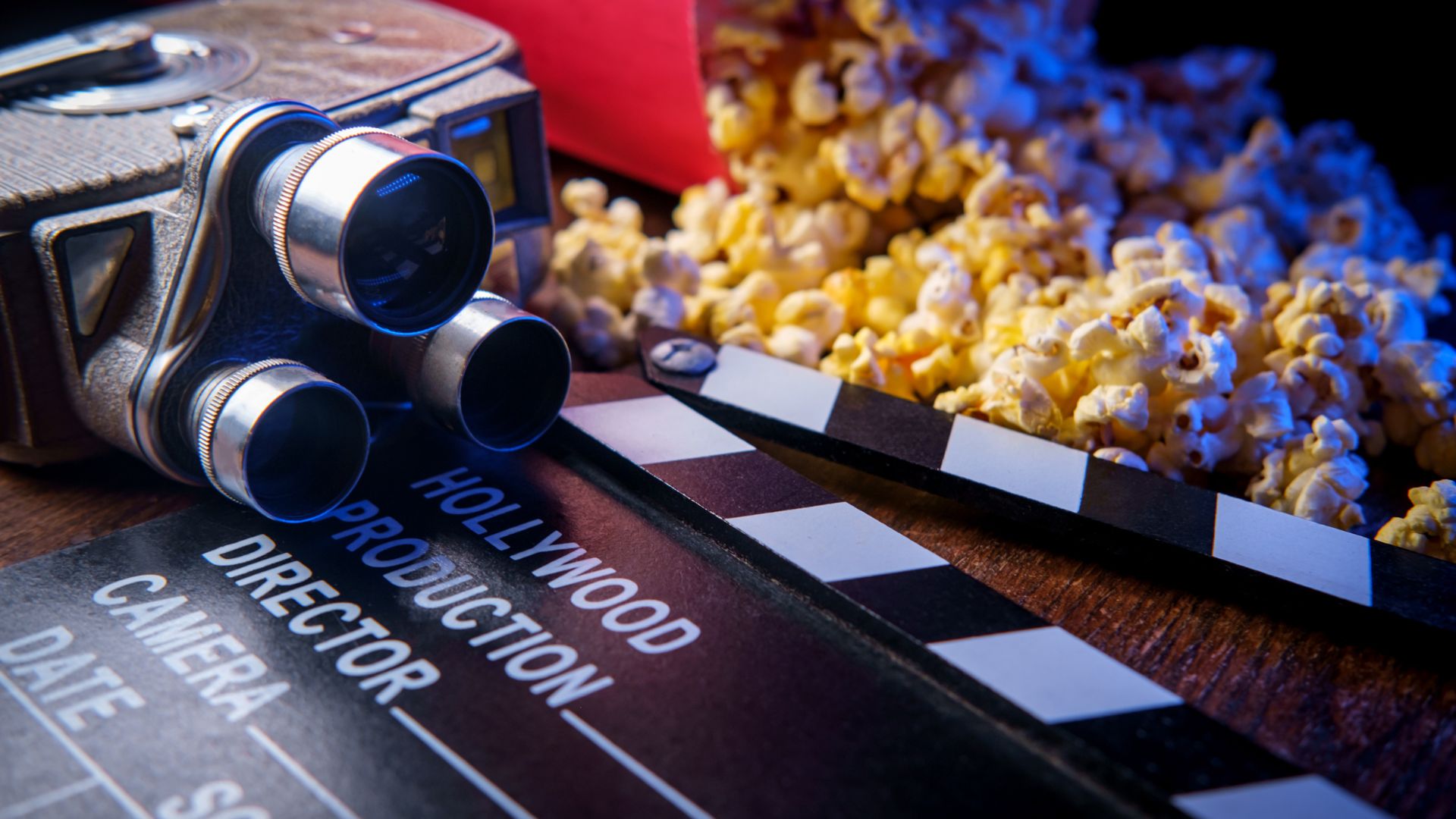
French films have a long history of producing quality movies, with renowned directors such as François Truffaut, Jean-Luc Godard and Claude Chabrol. French films often stand out for their artistic approach and in-depth treatment of themes such as love, family, politics and society. French films have also been praised for their unique visual style and original storytelling, making them a source of captivating and stimulating films for cinephiles the world over.
Untouchables
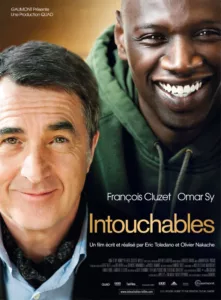
Intouchables is a French film about a paralyzed man named Philippe and his home help, Driss, who comes from a rough neighborhood in Paris. Their unlikely meeting gives rise to a sincere and touching friendship. The film tackles important themes such as race, class and difference in a moving and humorous way.
The character of Philippe is played by François Cluzet, who delivers an exceptional, touching performance. As for Omar Sy, he plays Driss with such authenticity and charisma that he won the César for Best Actor in 2012.
It has won numerous awards, including the Grand Prix at the Cabourg Film Festival and the Audience Award at the San Sebastian International Film Festival.
Ne le dis à personne (Tell No One)
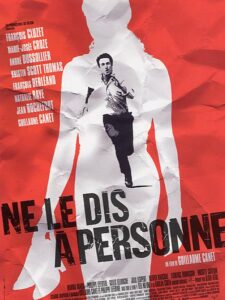
Ne le dis à personne is a French thriller that follows Alexandre Beck, a doctor trying to uncover the truth behind his wife’s death eight years after her alleged murder. The film is full of twists and turns and intrigue, with an incredible performance from François Cluzet in the lead role. Adapted from Harlan Coben’s novel of the same name, the film won the César for Best Director in 2007 for Guillaume Canet, who also starred in the film.
La Haine
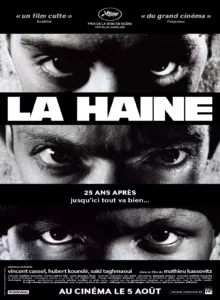
La Haine is a 1995 film directed by Mathieu Kassovitz that follows the lives of three young men living in a Paris suburb. The film tackles themes such as violence, discrimination and police brutality. The main characters, Vinz, Saïd and Hubert, are broken individuals who represent the deprived youth of the suburbs. They face poverty, injustice and oppression in their daily lives, leading to deep frustration and a sense of abandonment. The camera follows these young men as they wander the streets, looking for meaning in their lives and an escape from their difficult reality. The sequences are shot in black and white, reinforcing the film’s dark, desperate atmosphere.
La Haine offers an authentic and moving vision of life in the French suburbs, showing the devastating consequences of poverty and oppression on young people.
Irreversible
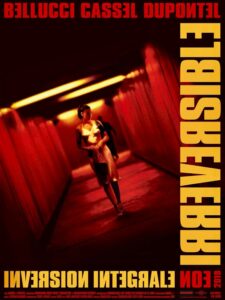
Irréversible is a French film directed by Gaspar Noé in 2002. The film is considered one of the most controversial in the history of French cinema. It follows the story of a man named Marcus, played by Vincent Cassel, who seeks revenge on the rapist of his girlfriend Alex, played by Monica Bellucci. The film is known for its inverted narrative structure, which begins with the end of the story and ends with the beginning, and its graphic violence.
The film was presented in official competition at the 2002 Cannes Film Festival, dividing critics and audiences alike. Some found the film too violent and shocking, while others praised the actors’ performances and Noé’s bold direction. The film also sparked debate on the portrayal of sexual violence in films.
Despite its controversy, Irréversible has been recognized for its unique style and impact on French and international cinema. It has won several awards, including the Prix de la Jeunesse at the Cannes Film Festival and the European Film Award for Best Editing.
Army of Shadows
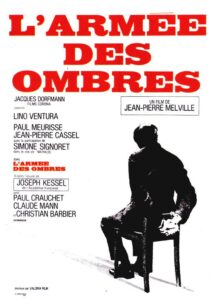
L’Armée des Ombres is a 1969 French film directed by Jean-Pierre Melville. It tells the story of a group of French resistance fighters during the Second World War. The film is based on the novel of the same name by Joseph Kessel, who himself was a Resistance fighter during the war. The film shows the courage, loyalty and determination of these men and women, and the sacrifices they have made for their country. It’s considered a classic of French cinema for its realism and moving depiction of the French Resistance, as well as for the outstanding performances of its actors, notably Lino Ventura, Simone Signoret and Paul Meurisse.
The Visitors
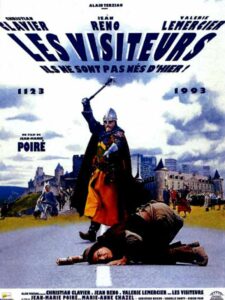
Les Visiteurs is a 1993 French comedy that follows the adventures of Godefroy de Montmirail, a medieval knight, and his squire Jacquouille la Fripouille, who are accidentally transported back in time to modern France. The film is known for its absurdist humor and memorable characters, notably the performances of Jean Reno and Christian Clavier in the lead roles.
The film was a huge success in France and was followed by several sequels and adaptations. It is considered a classic of French comedy and is often cited as one of the best films of the 1990s.
La Grande Vadrouille
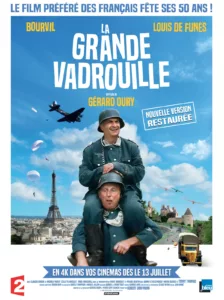
La Grande Vadrouille is a 1966 French comedy directed by Gérard Oury. The film follows two British civilians and a group of French resistance fighters who help Allied pilots escape from the Nazis during the Second World War. The film is known for its humor and action scenes, as well as its depiction of the French Resistance. It was a huge success in France and is often considered one of the best French films of all time.
Simone
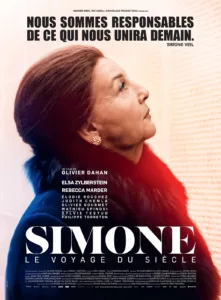
Simone is a 2002 French film about a film producer named Viktor who creates a virtual actress to replace a real one. The film is full of social satire and commentary on the nature of celebrity and the film industry. The character of Viktor is played by Alain Delon, while Rachel Roberts plays Simone, the virtual actress. The film was nominated for several Césars, including Best Actress for Roberts.
The Fabulous destiny of Amélie Poulain
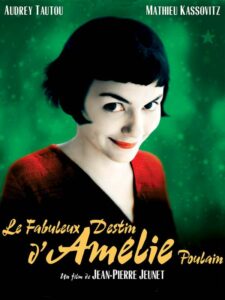
Amélie is a 2001 French film directed by Jean-Pierre Jeunet. It follows the story of Amélie Poulain, a young woman who decides to change the lives of those around her for the better. The film is known for its unique visual style and warm, optimistic tone. Audrey Tautou plays the character of Amélie with charm and humor, while the rest of the cast is equally excellent. The film was a huge success in France and abroad, winning several awards, including four Césars.
The Four Hundred Blows
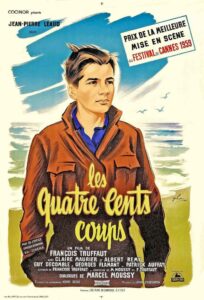
Les Quatre Cents Coups is a 1959 French film directed by François Truffaut. The film follows the life of Antoine Doinel, a young boy in Paris who rebels against the authority of his parents and society in general. The film is considered a classic of French cinema, and is hailed for its authentic depiction of youth and alienation. The character of Antoine is played by Jean-Pierre Léaud, who became an icon of French cinema thanks to his performance in the film.




